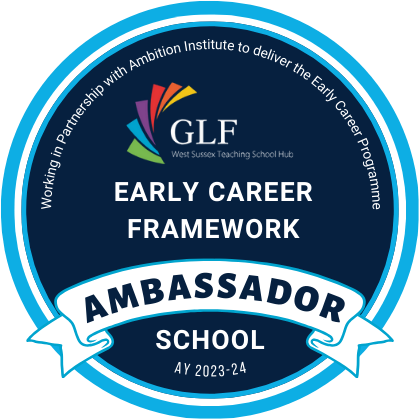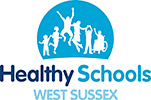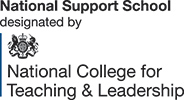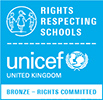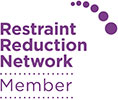The Curriculum
Curriculum at Manor Green Primary School
Our Vision
At Manor Green Primary School, we are building a creative, inclusive and aspirational community where we:
Learn, Laugh and Achieve Together
Our Moral Purpose
Every child is unique. We believe every child can succeed within their community and be supported to take an active role in their own life, learning and future.
Our Core Values
-
Respect and value every individual
-
Unlock potential
-
Inspire a love of learning
-
Equality and inclusion for all
Our Curriculum Intent
Our curriculum is broad, balanced and ambitious, designed to meet the diverse and complex needs of pupils aged 2 to 11. As a special school, the individual child is at the centre of all curriculum design so that learning is meaningful, accessible and personalised to each pupil’s age, developmental stage and EHCP outcomes.
Alongside academic learning, we promote pupils’ spiritual, moral, social and cultural development, as well as their mental and physical wellbeing. Our aim is to support every child to become confident, resilient and as independent as possible, helping them to be world-ready for future opportunities and experiences.
The National Curriculum forms part of our whole-school curriculum and is carefully adapted to ensure relevance and accessibility. Where appropriate, learning may be taught at different key stages or further personalised. We also prioritise learning across the four areas of need within the SEND Code of Practice:
-
Cognition and Learning
-
Communication and Interaction
-
Physical and Sensory Development
-
Social, Emotional and Mental Health
Whole-school curriculum themes are used to enrich learning and are adapted into immersive, differentiated topics across year groups.
English at Manor Green
At Manor Green, English is at the heart of everything we do. Reading, writing, speaking and listening skills support learning across the whole curriculum and help our children grow in confidence and independence.
Our English curriculum follows the National Curriculum (2014) and is carefully designed to meet the needs of every child. We take a holistic, sensory-based approach, recognising that children learn in different ways and at their own pace, while always encouraging them to achieve their very best.
We bring English to life through high-quality texts and cross-curricular themes, helping children develop key skills in spelling, grammar and handwriting in meaningful and engaging ways.
By working closely with families and other professionals, we support children to develop a love of reading and writing and to see themselves as confident, successful communicators.
See how we teach Writing at Manor Green in this short video
Phonics at Manor Green
At Manor Green, phonics begins with developing children’s awareness of sounds. Children start with our carefully designed Pre-Phonics Scheme of Work, recognised as best practice and shared with local schools, before progressing to the nationally recognised Rocket Phonics programme.
Phonics learning is closely matched to each child’s stage of development. Children working at a pre-formal level take part in interactive music and sound activities that build speaking and listening skills and help them tune into the sounds around them. This prepares them for early blending and segmenting.
As children become ready, daily synthetic phonics sessions are introduced through Reading Planet Rocket Phonics. This engaging programme uses interactive books and games to develop letter sounds, blending, segmenting, spelling and letter formation, both indoors and outdoors. Where appropriate, children who may become sight readers are supported through personalised programmes tailored to their individual needs.
If you would like to find out more, please contact Emma Glover, English Reading and Pronics Lead, at emma.glover@mgprimary.co.uk
See how we teach Phonics at Manor Green in this short video
Maths at Manor Green
As a member of the West Sussex Maths Hub, Manor Green aims to inspire children through fun, creative and engaging maths learning. We help children understand how maths is used in everyday life, building confidence and enjoyment alongside key skills.
Our teaching follows a maths mastery approach across all areas of the curriculum, using Big Maths and Little Big Maths to support clear progression and deep understanding. Learning is carefully planned to meet individual needs, with personalised targets that help every child succeed.
Children are introduced to a wide range of mathematical skills, including number, shape, space and measure, and data handling, with a strong focus on mastering number to support using and applying maths in meaningful ways.
To find out more, please contact Jodie Rowe, Maths Lead, at jodie.rowe@mgprimary.co.uk, or view our Calculation Policy.
See how we teach maths in this short video
Science at Manor Green
Science at Manor Green helps children make sense of the world around them. Through a highly practical and sensory-based approach, children are encouraged to explore, investigate and share their own ideas.
We nurture curiosity and independence by supporting children to ask questions, make observations and experiment. Children develop key scientific skills and knowledge in ways that match their individual needs, helping them understand how science connects to everyday life now and in the future.
Our carefully planned science curriculum is broad and balanced, with opportunities to explore areas such as plants, animals, materials, light, sound and seasonal changes, while building confidence and enjoyment in scientific enquiry.
To find out more, please contact Rebecca Bevan, Science Lead, at rebecca.bevan@mgprimary.co.uk.
See how we teach Science at Manor Green in this short video
Personal, Social and Health Education (PSHE) at Manor Green
At Manor Green, children’s wellbeing, safety and personal development are at the heart of everything we do. PSHE is woven throughout the school day and across the curriculum, supporting children to feel safe, confident and ready for the world around them.
Our PSHE curriculum, adapted using the PSHE Association, helps children develop essential life skills, including self-awareness, managing feelings, healthy lifestyles, relationships and staying safe. Learning is personalised through individual life skills targets, enabling every child to build independence at their own pace.
Through assemblies, small group work and personalised teaching, children explore topics such as friendships, family, online safety, growing and changing, and understanding boundaries. Learning is adapted to meet individual needs and reflects the changing world, our local community and our school population.
Relationships and Health Education, including age-appropriate learning about puberty in Years 5 and 6, is carefully planned and shared with parents and carers in advance to ensure consistency and understanding. We work closely with families to support children to develop positive relationships, respect for others and confidence in keeping themselves safe.
To find out more, please contact Chloe Simpson, PSHE Lead, at chloe.simpson@mgprimary.co.uk.
Computing at Manor Green
At Manor Green, computing is a key part of our core curriculum and plays an important role in preparing children for a digital world. All pupils have access to computing across our curriculum pathways, with learning carefully adapted to meet individual needs.
Our computing curriculum is thoughtfully planned and includes coding, creating digital content and developing essential digital skills. It closely links with our PSHE curriculum, with a strong focus on online safety, and we proudly celebrate Safer Internet Day each year.
Children take part in weekly computing or communication lessons and use technology across the curriculum to support learning. A blended approach is used, including tools such as Minecraft Education, Nearpod and Sumdog, to keep learning engaging and meaningful.
Online safety and digital wellbeing are a priority. We use bespoke assessment tools to track progress and systems such as Classroom Cloud, Jamf and ESMART to teach safe online behaviours and support children to navigate the online world confidently.
To find out more, please contact Jim Duncan, Computing Lead and Online Safety DSL, at jim.duncan@mgprimary.co.uk.
See how we teach Computing at Manor Green in this short video
Physical Education at Manor Green
At Manor Green, physical education is a vital part of school life. We believe all children should be active, build physical confidence and experience the enjoyment that movement brings.
Our PE curriculum is practical, inclusive and designed to meet the needs of every child. PE takes many forms, including lessons, swimming, dance, horse riding and hydrotherapy. Many children also take part in personalised physiotherapy and occupational therapy programmes to support mobility, strength and physical development.
We provide a broad and balanced PE curriculum, with adaptations and resources in place to ensure every child can take part and succeed. Learning is enhanced through strong links with the local community, including swimming at K2, horse riding at Littlebrooks and Clip and Climb at The Bridge.
Children also benefit from specialist coaches delivering activities such as golf and Football Fun Factory, as well as PE-focused trips. Sports Day is a highlight of the year, where families are warmly invited to celebrate children’s achievements together.
To find out more, please contact Coco Thaddeus, PE Lead, at coco.thaddeus@mgprimary.co.uk.
Foundation Subjects and Our Creativity Curriculum
These comprise History, Geography, Art, Design and Technology, Music and Religious Education.
Creativity in the Curriculum
We have a commitment to providing all learners at Manor Green School, with their “Cultural Entitlement”. By this we mean access to opportunities to meaningfully engage in a range of art forms. We want any encounters with the arts, to enable deep learning, and facilitate personal growth.
Design and Technology
Design and Technology teaches children to plan, design and create different products. It is taught through a wide range of creative practical activities and has many cross curricular links. The children learn how to communicate their ideas, how to use different materials and how to use a range of simple tools. They learn to make choices and how to evaluate their end product.
History
History is taught through topics to help pupils both develop a sense of past and present in their own lives and also as a knowledge and understanding of events, famous people and daily lives in the past. Learning is supported through studying of historical artefacts, educational visits, historical theme days and access to a range of historical sources.
Geography
Geography topics develop knowledge and understanding of places and environments throughout the world.
Activities include exploring the local community, collecting weather data, comparing different locations, finding out about places far away and using maps.
Art
Children are given the opportunity to develop their art skills over time through termly projects related to class topics. Children are also given exposure to different artists and techniques to help develop appreciation for their own work and others.
Dance and Drama
Drama is used to enhance our curriculum, develop knowledge and teach topics in a creative and fun way. Dance is taught within our PE sessions. Both drama and dance are showcased at various performances throughout the year including assemblies, our school winter and summer productions. We encourage children to explore all aspects of the arts and have performances/workshops by external artists wherever possible.
Music
Music is used to enhance and enrich all areas of the curriculum. It is used to engage and inspire pupils and to increase their self-confidence, creativity and sense of achievement. Performing, composing and listening; this includes singing and playing instruments.
We use the online programme of study ‘Charanga’ and ‘Singing Hands’ to support our Music curriculum.
R.E
At Manor Green, R.E. is inclusive of world faiths. We celebrate and learn about the belief systems of our children giving precedence to Christianity in line with the West Sussex Guidance.
Throughout the school year we celebrate festivals from a range of faiths and cultures, as reflected in our school population. Such festivals include Diwali, Harvest, Christmas and the birth of Jesus, Chinese New Year and the stories of Islam.
We learn about the Old Testament stories of Joseph, Noah, Jonah and the Whale, the miracles performed by Jesus, and Creation. We celebrate the miracle of His resurrection at Easter.
Our learning is creative and includes visits to Christian Churches, Mosques and Hindu Temples. We teach through the media of art; drama; dance; food technology, and plan visits both from religious speakers, and to a range of food outlets and restaurants. We celebrate through wonderful assemblies which incorporate visual effects; drama; and dance and which stimulate the children to enjoy and understand the cultures and beliefs of different faiths.
If you would like any more information on the curriculum please contact our Curriculum and Achievement Lead, cheryl.gallon@mgprimary.co.uk to discuss this further



